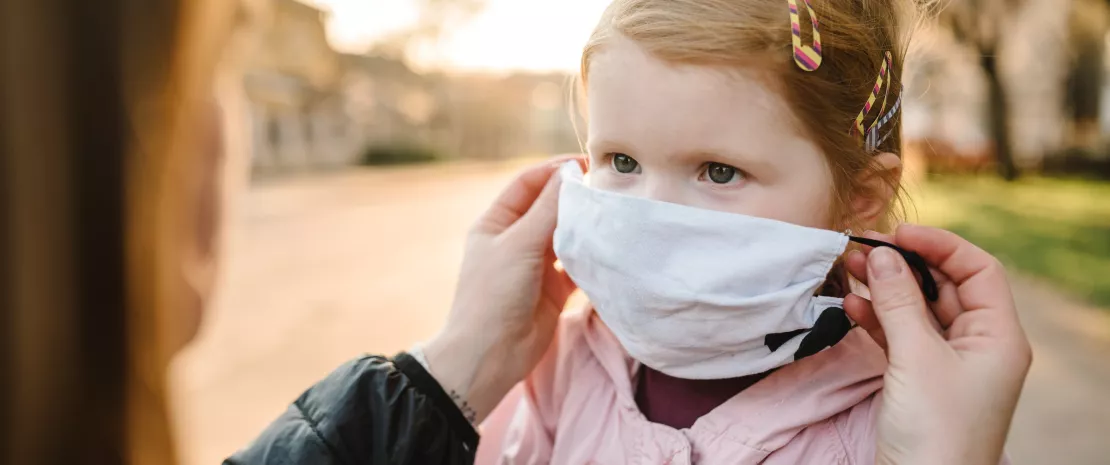Exposure to air pollution disturbs the microbiota of babies
Would going green protect our children from lung and cardiovascular diseases?
According to a study published in Gut Microbes, air pollution significantly alters the microbiota of babies, potentially impacting their future health.
- Learn all about microbiota
- Microbiota and related conditions
- Act on your microbiota
- Publications
- About the Institute
Healthcare professionals section
Find here your dedicated section
Sources
This article is based on scientific information

About this article
Road transport, factories, wood heating... It has long been known that air pollution adversely affects lung and cardiovascular health. Indeed, recent studies have shown that it alters the microbiota of adults. But what impact do air pollutants have on the microbiota of babies?
To answer this question, scientists from the University of Colorado Boulder (USA) measured air pollutant exposure levels in 103 Californian children aged six months. They also collected stool samples to analyze the composition of their microbiota.
9 out of 10 people According to the WHO, 9 out of 10 people breathe polluted air.
7 million This pollution is responsible for 7 million deaths each year.
(sidenote: WHO. https://www.who.int/news-room/spotlight/how-air-pollution-is-destroying-our-health/10-things-to-know-about-air-pollution )
Serious microbiota disturbances
The scientists found that, after adjusting for potential confounders such as birthweight, socioeconomic status, mode of delivery, and breast or formula feeding, the more newborns are exposed to air pollution, the greater the changes to the composition of their microbiota.
Air pollution: a major public health issue
Residential heating, road transport, construction sites, industry, and quarries are the main sources of air pollution. They are responsible for emissions of toxic particulate matter (PM) and nitrogen dioxide (NO2). Fine particles can pass through the body’s protective membranes and affect the heart, lungs, and brain.
Children are particularly sensitive to air pollution. Among children, air pollution can lead to respiratory diseases, cancer, and cognitive disorders.
The microbiota of the most exposed babies contained more Dialister and Dorea, two bacterial genera associated, in adults, with systemic inflammation and a higher risk of cancer, multiple sclerosis, and mental health disorders.
Their microbiota also contained fewer bacteria that produce short-chain fatty acids (
(sidenote:
AGCC
Acides gras à chaîne courte
)
), which are known to have beneficial effects on gut barrier integrity, cardiovascular health, gut-brain communication, and the
(sidenote:
Blood-brain barrier
The blood-brain barrier is a “physical” barrier that separates the central nervous system (CNS) from the bloodstream. It tightly controls exchanges between the blood and the brain compartment.
Engelhard HH, Arnone GD, Mehta AI, Nicholas MK. Biology of the blood-brain and blood-brain tumor barriers. InHandbook of Brain Tumor Chemotherapy, Molecular Therapeutics, and Immunotherapy 2018 Jan 1 (pp. 113-125). Academic Press. https://www.sciencedirect.com/science/article/pii/B9780128121009000085
)
.
Understanding the effects of pollution on microbial communities
This study highlights for the first time an association between exposure to ambient air pollution and the gut flora composition of young children. Although concerning, these results still need to be confirmed and completed by further studies. As a next step, researchers should follow changes in the children’s microbiota over time, try to identify the mechanisms by which pollution exerts its effects on microbial communities, and find out whether the changes are really associated with health problems.












